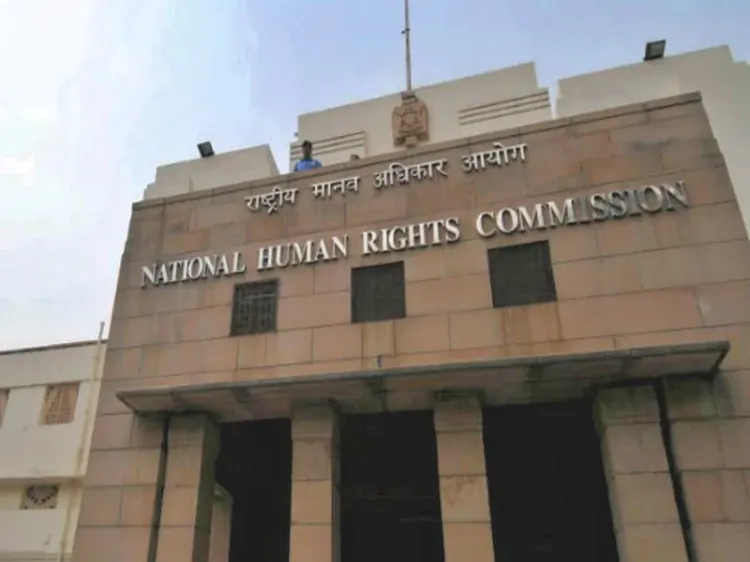Did NHRC Take Suo Moto Action on Alleged Assault of Journalists by MP Police?

Synopsis
Key Takeaways
- NHRC's involvement signifies a serious response to human rights violations.
- Journalist safety is a pressing issue in India.
- The case highlights potential collusion between local authorities and illegal activities.
- Judicial scrutiny of police actions is crucial for accountability.
- Media freedom is essential for a healthy democracy.
New Delhi, June 5 (NationPress) The National Human Rights Commission (NHRC) has initiated suo motu cognizance regarding the violent assault on two journalists by the Madhya Pradesh police due to their coverage of "illegal sand mining" occurring in the Chambal river.
The foremost human rights organization has dispatched a notice to the Director General of Police (DGP) of Madhya Pradesh, demanding a comprehensive report on this issue within a fortnight.
In light of a press statement from the Press Club of India, the NHRC expressed that the allegations contained in the press release, if verified, indicate a significant breach of the human rights of the affected journalists.
The Supreme Court is currently reviewing a petition submitted by journalists Shashikant Jatav and Amarkant Singh Chouhan, who report facing severe threats to their safety and freedom from the Bhind police.
On Wednesday, a panel of Justices Sanjay Karol and Satish Chandra Sharma acknowledged their request but refrained from issuing any interim protective measures against potential coercive actions.
Judge Karol noted that before any interim ruling could be made, the Madhya Pradesh government must also present its version of the facts.
"If you commit a crime such as murder, can we really provide you with an order against coercive actions? We are unaware of what crime has been reported against you," remarked the Supreme Court, urging the petitioners’ counsel to include the Superintendent of Police of Bhind as a respondent.
The court is scheduled to hear their case next on Monday (June 9).
The journalists asserted that they were compelled to leave their hometown due to the severity of these threats following their revelations about "illegal" sand mining in the Chambal river, allegedly conducted with local police backing.
Within their writ petition submitted to the apex court, the journalists identified IPS officer Asit Yadav and his associates as central figures in the abuse, claiming that the targeting is in retaliation for their investigative reporting.
They have alleged custodial assault, caste-based discrimination, kidnapping, and ongoing harassment from the Bhind police.










